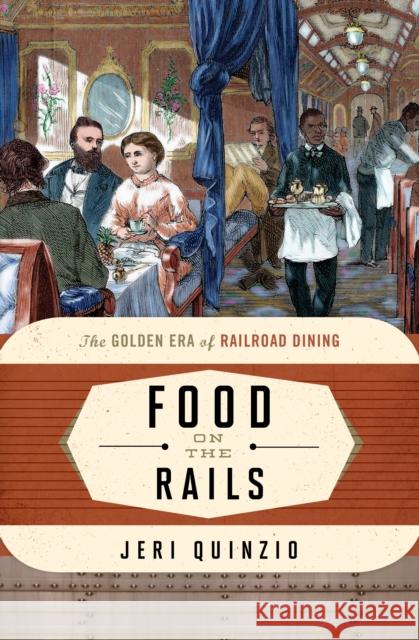Food on the Rails: The Golden Era of Railroad Dining » książka
Food on the Rails: The Golden Era of Railroad Dining
ISBN-13: 9781442272385 / Angielski / Miękka / 2016 / 196 str.
Food on the Rails: The Golden Era of Railroad Dining
ISBN-13: 9781442272385 / Angielski / Miękka / 2016 / 196 str.
(netto: 139,94 VAT: 5%)
Najniższa cena z 30 dni: 132,56
ok. 30 dni roboczych.
Darmowa dostawa!
In roughly one hundred years - from the 1870s to the 1970s - dining on trains began, soared to great heights, and then fell to earth. The founders of the first railroad companies cared more about hauling freight than feeding passengers. The only food available on trains in the mid-nineteenth century was whatever passengers brought aboard in their lunch baskets or managed to pick up at a brief station stop. It was hardly fine dining. Seeing the business possibilities in offering long-distance passengers comforts such as beds, toilets, and meals, George Pullman and other pioneering railroaders like Georges Nagelmackers of Orient Express fame, transformed rail travel. Fine dining and wines became the norm for elite railroad travelers by the turn of the twentieth century. The foods served on railroads - from consomme to turbot to souffle, always accompanied by champagne - equaled that of the finest restaurants, hotels, and steamships. After World War II, as airline travel and automobiles became the preferred modes of travel, elegance gave way to economy. Canned and frozen foods, self-service, and quick meals and snacks became the norm. By the 1970s, the golden era of railroad dining had come grinding to a halt. Food on the Rails traces the rise and fall of food on the rails from its rocky start to its glory days to its sad demise. Looking at the foods, the service, the rail station restaurants, the menus, they dining accommodations and more, Jeri Quinzio brings to life the history of cuisine and dining in railroad cars from the early days through today.











